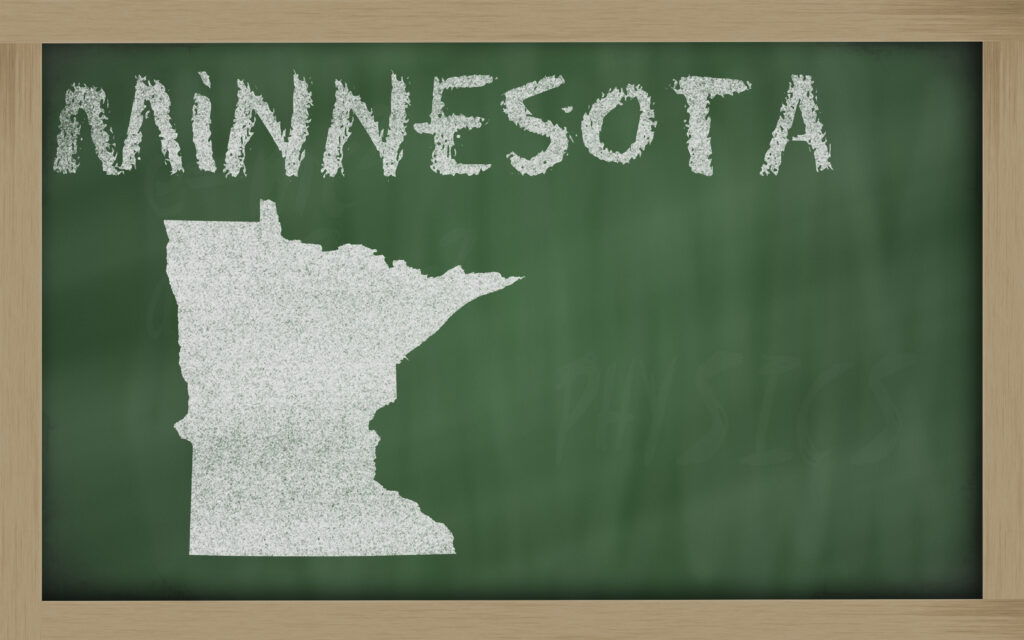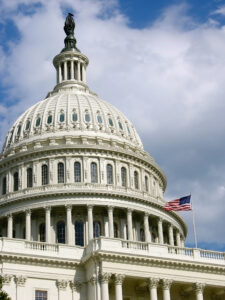 By Marie Huey, Public Policy and Advocacy CoordinatorEvery eligible Minnesota voter will have the opportunity to make their choice for statewide and federal offices this November. What authority do these positions have over early childhood care and education policies? Reviewing the roles of each position on the upcoming ballot can help you make informed voting decisions.GovernorThe governor is responsible for administering the laws of the state, proposing a state budget, and approving or vetoing bills passed by the legislature.Early education programs specific to Minnesota include: Early Childhood Family Education, Voluntary Prekindergarten, Parent Aware, and Early Learning Scholarships. Additionally, Minnesota makes state contributions to federal programs including Targeted Home Visiting, Head Start, and the Child Care Assistance Program (CCAP).When proposing the budget, a governor can work with the legislature to increase or cut funding to these programs. He or she could also create new programs.The governor appoints heads of departments and agencies who help shape and carry out the vision of the administration. They make decisions about how to implement programs. The governor can also establish groups to provide recommendations and engage the community. For instance, Governor Dayton established an Early Learning Council and the Children’s Cabinet.The Lieutenant Governor has very few official duties and generally works to support the governor’s agenda.View an overview of the three branches of Minnesota Government and the duties of the various positions.U.S. Senator and Congressperson
By Marie Huey, Public Policy and Advocacy CoordinatorEvery eligible Minnesota voter will have the opportunity to make their choice for statewide and federal offices this November. What authority do these positions have over early childhood care and education policies? Reviewing the roles of each position on the upcoming ballot can help you make informed voting decisions.GovernorThe governor is responsible for administering the laws of the state, proposing a state budget, and approving or vetoing bills passed by the legislature.Early education programs specific to Minnesota include: Early Childhood Family Education, Voluntary Prekindergarten, Parent Aware, and Early Learning Scholarships. Additionally, Minnesota makes state contributions to federal programs including Targeted Home Visiting, Head Start, and the Child Care Assistance Program (CCAP).When proposing the budget, a governor can work with the legislature to increase or cut funding to these programs. He or she could also create new programs.The governor appoints heads of departments and agencies who help shape and carry out the vision of the administration. They make decisions about how to implement programs. The governor can also establish groups to provide recommendations and engage the community. For instance, Governor Dayton established an Early Learning Council and the Children’s Cabinet.The Lieutenant Governor has very few official duties and generally works to support the governor’s agenda.View an overview of the three branches of Minnesota Government and the duties of the various positions.U.S. Senator and Congressperson Members of the U.S. Senate and House of Representatives make and pass federal laws. They pass budgets that increase or cut funding to federal programs that have to be signed by the president in order to become law.Current federal programs that affect early childhood education include: Child Care Development Block Grant (CCDBG), Maternal, Infant, and Early Childhood Home Visiting Program (MIECHV), Head Start/Early Head Start, Part B of the Individuals with Disabilities Education Act (IDEA), Part C of IDEA, and the Every Student Succeeds Act (ESSA).Each senator and representative sits on various committees. The Health and Human Services and Education committees are the two that hear the most bills related to early childhood education policy.You can find out which committees each House member is on here. The Senate information is here.Read more about the role of the U.S. Congress.State Attorney GeneralAs the chief legal officer in the state, the attorney general’s office provides legal representation to over 100 state agencies, boards, and commissions and represents the State of Minnesota in state and federal court and administrative hearings. The attorney generalenforces state consumer protection and antitrust laws, regulates charitable institutions, and advocates for people and small businesses in utilities matters. The position does not currently have much interaction with the early childhood education field.Read more about the Attorney General’s duties and actions.State AuditorThe State Auditor’s Office performs financial and legal compliance audits of local governments and investigates allegations of theft or public misuse of funds. Local governments include counties, which administer the Child Care Assistance Program. The office also audits school districts, which administer some early learning programs.Read more about the State Auditor.Secretary of StateAct as chief election official, certify records, file business registrations, administer Safe at Home and act as custodian of official records and the state seal. This office does not have direct contact with early education programs.Read more about the Secretary of State.State Representatives
Members of the U.S. Senate and House of Representatives make and pass federal laws. They pass budgets that increase or cut funding to federal programs that have to be signed by the president in order to become law.Current federal programs that affect early childhood education include: Child Care Development Block Grant (CCDBG), Maternal, Infant, and Early Childhood Home Visiting Program (MIECHV), Head Start/Early Head Start, Part B of the Individuals with Disabilities Education Act (IDEA), Part C of IDEA, and the Every Student Succeeds Act (ESSA).Each senator and representative sits on various committees. The Health and Human Services and Education committees are the two that hear the most bills related to early childhood education policy.You can find out which committees each House member is on here. The Senate information is here.Read more about the role of the U.S. Congress.State Attorney GeneralAs the chief legal officer in the state, the attorney general’s office provides legal representation to over 100 state agencies, boards, and commissions and represents the State of Minnesota in state and federal court and administrative hearings. The attorney generalenforces state consumer protection and antitrust laws, regulates charitable institutions, and advocates for people and small businesses in utilities matters. The position does not currently have much interaction with the early childhood education field.Read more about the Attorney General’s duties and actions.State AuditorThe State Auditor’s Office performs financial and legal compliance audits of local governments and investigates allegations of theft or public misuse of funds. Local governments include counties, which administer the Child Care Assistance Program. The office also audits school districts, which administer some early learning programs.Read more about the State Auditor.Secretary of StateAct as chief election official, certify records, file business registrations, administer Safe at Home and act as custodian of official records and the state seal. This office does not have direct contact with early education programs.Read more about the Secretary of State.State Representatives Just like their federal counterparts, members of the Minnesota House of Representative are responsible for enacting and revising laws. They can create new programs or modify existing ones. The same state programs apply as for the governor. Working with the state senate and the governor, the house creates the budget for the state, which determines how much money is allocated to early education initiatives. While funding greatly affects programs the policy changes that State Representatives make can also drastically change the landscape.Read about the Minnesota House of Representatives.Take ActionView your sample ballot to see who is running for each office in your area, including links to candidate websites if applicable. Find out what each candidate stands for and how it aligns to your values and expectations. Making informed decisions is a great way to have your voice heard!
Just like their federal counterparts, members of the Minnesota House of Representative are responsible for enacting and revising laws. They can create new programs or modify existing ones. The same state programs apply as for the governor. Working with the state senate and the governor, the house creates the budget for the state, which determines how much money is allocated to early education initiatives. While funding greatly affects programs the policy changes that State Representatives make can also drastically change the landscape.Read about the Minnesota House of Representatives.Take ActionView your sample ballot to see who is running for each office in your area, including links to candidate websites if applicable. Find out what each candidate stands for and how it aligns to your values and expectations. Making informed decisions is a great way to have your voice heard!








